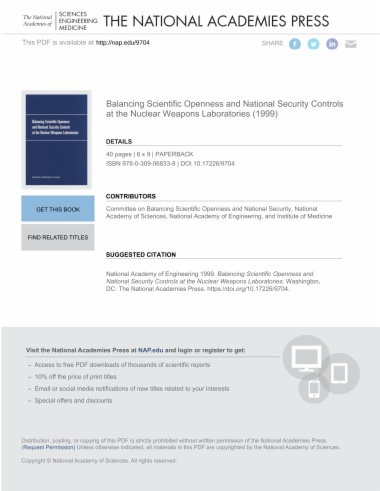

This report addresses consequences of current and proposed restrictions on international contacts by the U.S. Department of Energy's (DOE) national laboratories and explores methods of best serving national security through positive new scientific advances facilitated by international communication among scientists, through scientific contacts to further non-proliferation, and through careful protection of crucial classified information from foreign espionage. The report summarizes a symposium that examined: the role of the DOE's national laboratories in national security and the contributions by foreign laboratories and scientists, proposals for amending security policies of the weapons laboratories in regard to contact with foreign laboratories and scientists, and the risks and benefits of scientific openness in this context. Finally, the report reviews current policies and proposals designed to enhance security at the weapons laboratories, primarily those related to restrictions on foreign contacts by DOE scientists.